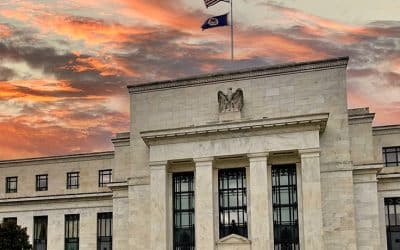Markets head south after Powell's intervention in Congress

Redacción Mapfre
Equity markets around the world have reacted with doubts after the intervention in the U.S. Congress of the President of the Federal Reserve (Fed), Jerome Powell, during which he didn’t rule out interest rates rising above expectations due to the strength of macroeconomic data.
However, Alberto Matellán, chief economist at MAPFRE Inversión, believes that interest rate hikes don’t always succeed in reducing inflation. "The aim of the rate hike is to hurt growth, in the hopes that will in turn soften inflation. But that's overly simplistic, because with certain inflation rates, it doesn't always work out like that. When it comes on the demand side, it can work, but when it's external or supply-related, that's not always the case," he says.
In this regard, Europe and the United States are in a different position given that price increases are due to different reasons: in the United States, where they are more demand-driven, rate hikes will damage growth. In Europe, where inflation is driven by external reasons, it could be more difficult.
However, Matellán recalled that the last 15 years have been the exception, not the current rate level. "In 2007, we talked about rates of around 5% or 5.25% and it seemed like the most normal thing in the world. Then came the financial crisis and things changed. I think what’s happening is that we’re returning to a normal, reasonable situation," says Matellán.
MAPFRE’s chief economist adds that, with regard to long-term growth, it’s “much healthier to be with rates at 4% than 0%.” "A healthy economy produces goods and services, not just money. That which produces money may seem healthy because the GDP figures are good, but the important thing is that we return to that production of goods and services, and that’s done with standardized rates," he explains.
The rise in interest rates also has positive consequences: it has substantially increased the profitability of certain assets, such as guaranteed funds, which hadn’t been of much interest to investors for years. “With the rates where they are and good fixed income managers, it’ll soon be possible to find guaranteed products with the same returns and even higher than the government bonds,” he adds.
Real estate loses its shine
This week saw the number of home purchases falling by 7.3% year-on-year in January, with a total of 44,569 transactions, as per data from the General Council of Notaries.
As an asset class, real estate is “tremendously sensitive” to interest rates and liquidity, meaning that, over the last 15 years, with rates at zero and massive liquidity, it “has benefited a lot.”
Matellán points out that what’s happening is that a huge structural change is taking place, pivoting toward a “more normal” situation in which rental provisions are lower and rates are higher, so the real estate sector as an investment will be less attractive in the next 10 years than it has been over the last 15.
Daniel Sancho, head of investment at MAPFRE Gestión Patrimonial, agrees, noting that the relentless daily noise can often cloud investment decisions, which in many cases have a multi-year horizon.



